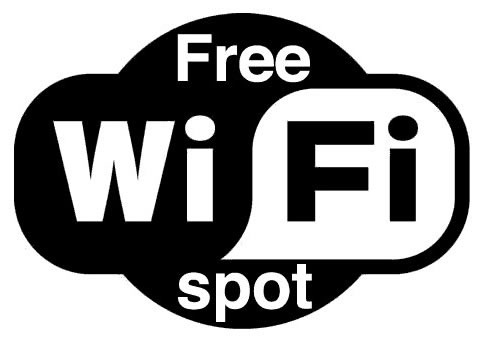
Isn’t it nice of your local grocery store to offer free WiFi? That way, you can use your mobile device to email, go online – and have your every move tracked while you shop. Nice!
It’s well known that one of the tradeoffs of having a store loyalty card is that your store knows what you’re buying. Plenty of shoppers are ok with that (read: “Don’t Invade My Privacy! Unless You Have Coupons. Then It’s Ok.”). But many may not be aware that there’s a similar tradeoff in taking advantage of stores’ free wireless services.
Many grocery stores offer free WiFi in their cafe seating areas. So, much like a Starbucks of 10 years ago (though Starbucks charged for WiFi back then), people toting bulky laptops can get online while sipping a drink. But internet-enabled devices aren’t bulky anymore, and many shoppers don’t want to have to sit at a table to go online. So a number of retailers have begun offering free WiFi throughout their stores. This year, Massachusetts-based grocery chain Big Y and Florida-based Publix were among those who began offering free WiFi in all of their locations. Target offers WiFi nationwide as well, as do other retailers like Sam’s Club, JCPenney and Macy’s.
“It’s where guests are going and where we need to be,” a Target spokesman tells Fortune magazine. But stores aren’t offering it as a perk, just because they like you. Target’s wireless terms of use note that they “automatically collect information” such as your IP address, the websites you visit and what mobile coupons you access or redeem. The British supermarket chain Tesco knows even more about its wireless users. It offers unlimited free WiFi only to customers who have a store loyalty card – and who use their card number (which they signed up for using their name and address) to log into the system.
That means stores can find out what exactly you’re doing online – whether it’s accessing the store’s website, for example, or perhaps comparing prices on a rival’s website. In theory, this kind of access to your information and browsing habits raises privacy concerns. In reality? Perhaps not so much. At least not yet. Through their loyalty card programs, “grocery stores have, for all intents and purposes, had this information for years,” an analyst told Fortune. But few are actually using that data. In a December 2010 report, business consulting firm Alix Partners advises clients that “these programs can yield information about your customers that is valuable not only to you but also to advertisers,” but “grocers simply don’t know what to do with these mountains of data.” Besides, Publix, one of the free WiFi providers, doesn’t even have a loyalty program (read: “Down With Loyalty Cards: Another View”).
So it may be a safe bet that most grocery stores are unlikely to track your WiFi habits just yet, if they haven’t even figured out how to effectively use their loyalty card data. And some stores say it’s not about data collecting anyway. Big Y encourages its WiFi users to “access the newly re-designed BigY.com while shopping, which allows them to manage their profiles, view store flyers, enter contests, and explore special savings.” Similarly, Publix touts its own mobile app, which allows WiFi users to check prices and sale items. They consider it a customer convenience, to provide better online access in cavernous stores where cell phone service can be spotty.
And many customers appreciate it. In a 2011 report, the wireless company Devicescape said 81% of people it surveyed “would be more likely to visit a retail store if their device could automatically connect to its network upon entering.” It also noted that nearly 65% “want to receive coupons and other promotions via their smartphone once connected.”
And that could be the future of free WiFi. Assuming stores can someday figure out how to utilize all the data their wireless services collect, they can conceivably track where you are in the store at any given time, note what aisles you frequent, and push relevant offers and coupons to your mobile device depending on what you’re currently shopping for. Indeed, Target’s wireless terms of use note that they may use WiFi data for “marketing – e.g., banner ads, mobile coupons.” A recent Deloitte survey found that people who go online while shopping in stores, are 14% more likely to make a purchase in that store – even more so, if they access the store’s website or app.
So free WiFi is not just a customer convenience, but good business – as long as you don’t mind giving up just a little bit more privacy for the privilege.










